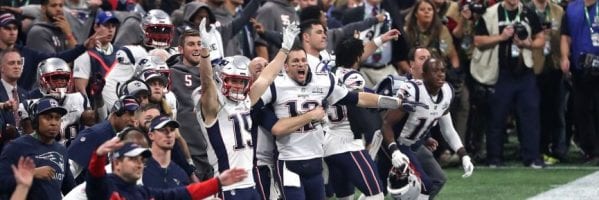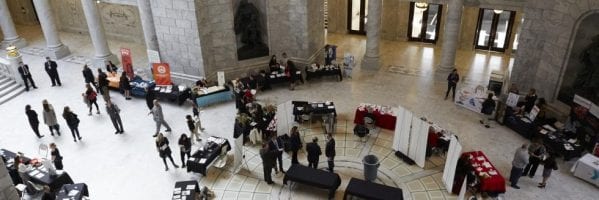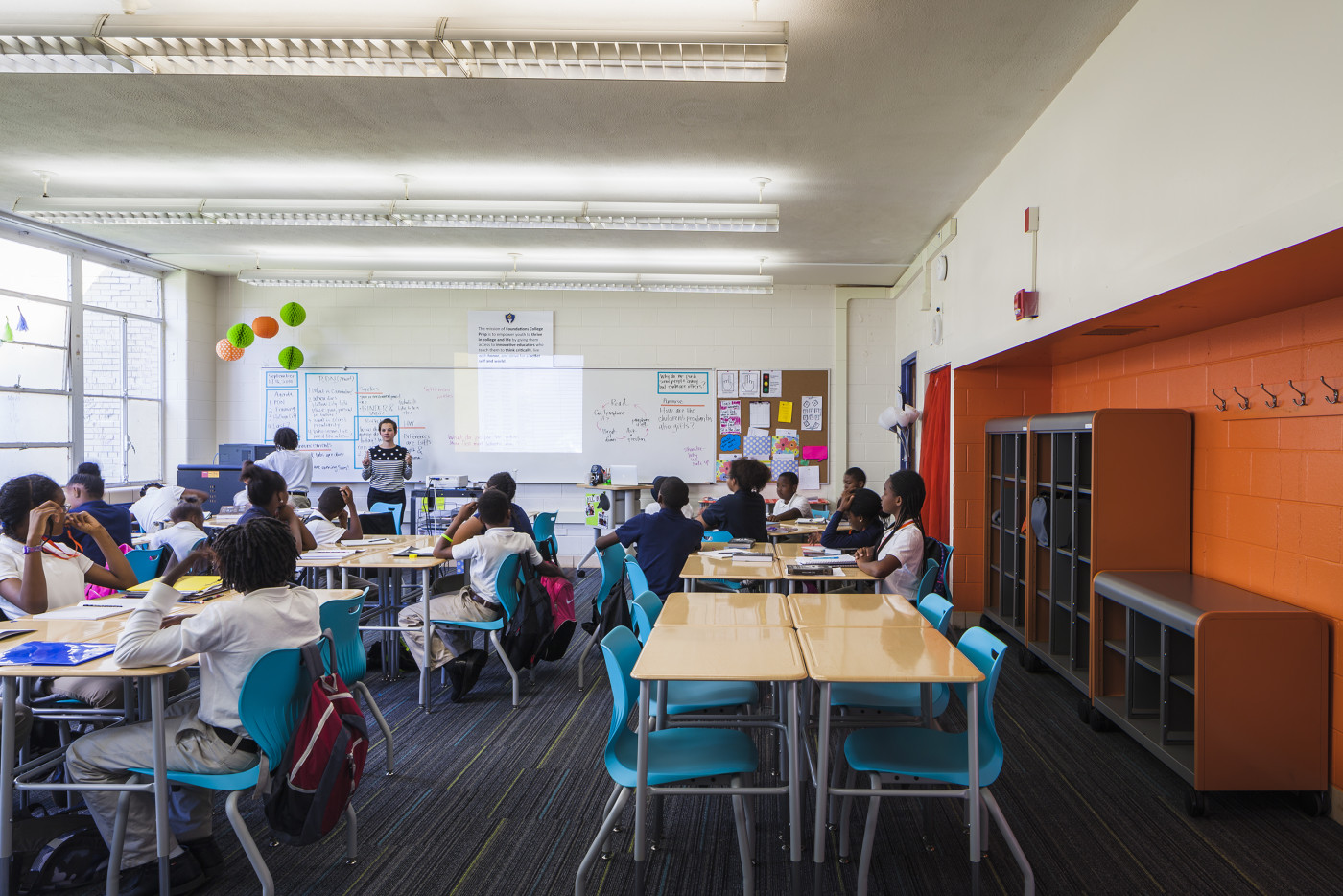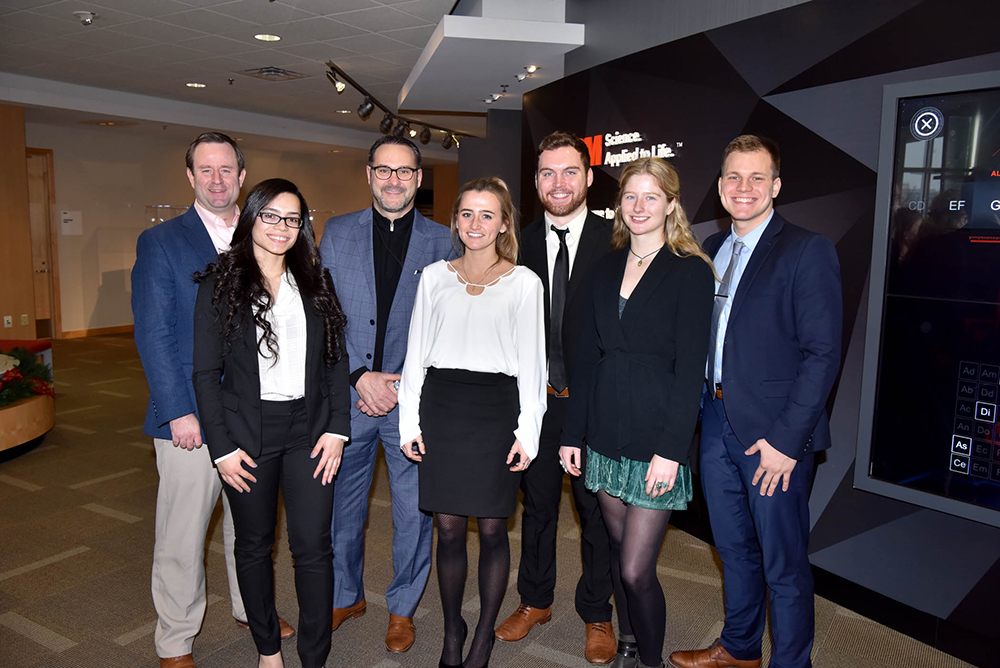Kellogg MBA Students Choose Best 2019 Super Bowl Ads

Aside from Tom Brady, Aaron Donald, and a shirtless Adam Levine, there’s no doubt that the Super Bowl commercials were the star of the night last Sunday.
The game, certainly, wasn’t the most thrilling. So the question is, what was the best ad of the 2019 Super Bowl? To get to the bottom of the question, a panel of Northwestern Kellogg MBA students got together to discuss each commercial. In the end, they looked for the ads that were the most and least effective at driving business and building their brands.
How Super Bowl Commercials Evaluation Works
First, before we dive into the best and worst ads, it’s important to know how the Kellogg MBAs made their evaluation. Working alongside two of the school’s most widely respected marketing professors—Time Calkins and Derek Rucker—the MBA panel applied the strategic ADPLAN framework.
A—Attention: Did the commercial engage the audience?
D—Distinction: Was the execution unique in delivery?
P—Positioning: Did the commercial represent the appropriate category and feature a strong benefit?
L—Linkage: Will the benefit and brand be remembered?
A—Amplification: Were viewers’ thoughts favorable?
N—Net Equity: Was the commercial consistent with the brand’s reputation and history?
From here, the MBA students came up with the final 2019 rankings.
Microsoft Super Bowl Commercial Wins
For the most effective ad, Microsoft took home the top prize. Their commercial spot was not only charming, but it stood out for its emotional tone and lack of clutter. The ad demonstrated Microsoft’s new adaptive controller and how it helps disabled kids play video games and form friendships. A clear benefit was apparent, showing how Microsoft technology makes the world a better place.
Amazon, Expensify, and Other Standouts
Other stand out advertisers for the Super Bowl included Amazon, Expensify, Washington Post, Pepsi, Bumble, and Google.
Bizarre Andy Warhol Burger King Commercial Flops
As for the least effective Super Bowl commercial, that honor went to Burger King. Their strange ad featured 1982 footage of Andy Warhol eating a Whopper, but it just came across as dull and uninteresting. Other advertising failures included the confusing Avocados From Mexico ad, Sprint’s flying horse disaster, the Turkish Airlines dark and scary spot, Mint Mobile’s unappealing chunky milk, and Simplesafe’s unbalanced ad. As for why each of these commercials failed, it always came back to a confusing message that didn’t deliver a clear benefit.
This article has been republished and edited from its original source, Clear Admit.
Booth Research Reveals Dominance of Snap Judgement, and More – Chicago News

Let’s explore some of the most interesting stories that have emerged from Chicago business schools this week amidst the Polar Vortex (stay warm, everyone).
Why People Make up Their Minds Sooner Than They Realize – Chicago Booth News
More information does not necessarily lead to more informed decisions. New research from the University of Chicago Booth School of Business finds that people assume they can and will use more information in making decisions, despite the contrary evidence. Often, people make snap judgement without awareness and most collected information goes unused.
Ed O’Brien, Chicago Booth Associate Professor and co-author of “People Use Less Information Than They Think to Make Up Their Minds,” asserts, “In our studies, participants thought they would withhold judgment and await a lot of evidence before making up their minds but in reality, they cast judgment right when the evidence came in.”
Researchers note that the data suggests a gap between information seekers and information providers.
“For example, people who go online to research a topic or take part in a debate may only access a small fraction of what is available before making a decision while providers of that information may assume the seekers are taking in all the information and hear them ‘loud and clear.'”
You can read more about Ed O’Brien’s research here.
Why We Can’t All Get Away with Wearing Designer Clothes – Kellogg Insight
While luxury brands are a surefire way to indicate status, a new series of experiments reveal the surprising downsides of luxury consumption.
According to a new paper by Northwestern University Kellogg School of Management Professor of Marketing Derek Rucker and Ph.D. candidate Christopher Cannon, luxury consumers may find themselves at a disadvantage in the hiring process. This instance is even more particular when the job involves interpersonal warmth. Rucker and Cannon’s research explores how consumers who wear luxury goods are viewed more negatively and perceived as “cold.”
Cannon notes, “We don’t find evidence in this work that the effects are driven by envy. We find evidence that luxury consumption can lead people to infer certain motives. Specifically, when people assume that someone has donned luxury goods in order to show off, this can lead them to see that person as less warm.”

Despite the obvious social appeal, Cannon and Rucker’s new research suggests that luxury brands, like Gucci, tend to create an impression that appears interpersonal.
Cannon and Rucker point out the importance of evaluating the situation before donning your Gucci. “We’ve shown situations exist where luxury consumption produces positive outcomes, such as when filling the corporate publicist role in the experiment. Rather than luxury always being good or always being bad, it depends on whether status or warmth is more important.”
You can read more about the luxury research here.
Howe Teaches Students How to be Professional Leaders – Gies School of Business News
Alan Howe (BADM ’82), a professional board director, has served across multiple industries—including enterprise software, wireless, telecom, composite materials, and IT services—specializing in “turnaround” situations. He recently returned to the University of Illinois Gies College of Business to share his expertise with the next generation of business leaders.
“I tell students that what they think they’re going to be doing in the next three years is probably radically different than what they’ll be doing in 10 to 15 years, so get ready for change. Be adaptable because you never know where the next opportunity may come from,” Howe asserts in a recent profile.
In the interview, Howe further explains what makes a great business leader:
“The best characteristic is humility. You can’t ‘big dog’ in a corporate setting or talk about how smart you are. Lead with humility. Also listen and learn from people around you.”
You can read more from the Howe interview here.
Tackling Unemployment Insurance with Google, and More – Chicago News

Let’s explore some of the most interesting stories that have emerged from Chicago business schools this week.
What Google Is Teaching Economists About Unemployment Insurance – Kellogg Insight
For decades, policymakers have debated whether unemployment insurance provides a critical safety net during tough times or whether it extends joblessness by reducing the incentive to find a new job.
Northwestern University Kellogg School of Management Associate Professor of Finance Scott R. Baker and BU Questrom’s Andrey Fradkin used data from Google Trends to shed some light on this question by providing real-time access to millions of searches that can be aggregated across geographies.
“We realized we could look at people’s job-search habits in a way that traditional government datasets had a hard time doing,” Baker says.
Baker says the value of the Google Job Search Index extends well beyond job-search tracking. The GJSI offers new ways to forecast consumer sentiment and economic uncertainty by tracking search terms such as “recession” and “bankruptcy.”
“This approach can be really useful for policymakers because it can be much more local and granular,” Baker notes, “and they can access it without a six-month or year-long lag.”
You can learn more about the duo unemployment insurance research here.
Pioneers in Education – Chicago Booth News
Six Booth School of Business graduates hope to apply their business backgrounds and bold ideas to a variety of roles within the education sector, including nonprofit management, education consulting, investing, and education technology.
Booth MBA alum Micki O’Neil, founder of Foundations College Prep, a public charter school in Chicago’s Roseland community on the city’s south side, explains how Booth provided her with the necessary skills to handle the rigors of running a charter school. “Starting a school is a pretty all-encompassing thing. It takes leadership and entrepreneurial skills, as well as operations, marketing, and financial know-how,” she says.

“Starting a school is a pretty all-encompassing thing. It takes leadership and entrepreneurial skills, as well as operations, marketing, and financial know-how,” O’Neil says.
As the school matures into its fifth year, O’Neil finds herself reflecting on her Booth coursework as she tackles ongoing challenges, noting “when we think about designing our school and the way we are structuring our time, it is grounded in strong economic theory.”
You can read more about O’Neil’s journey here.
Gies Business Cooking Up Food Science Entrepreneurs – Gies College of Business News
The University of Illinois Gies College of Business recently partnered with the College of ACES to develop a unique collaboration in which students take a deep dive into the business strategies of food science.
“This course collaboration was a perfect opportunity to infuse entrepreneurship education with an emphasis on social purpose into an effective food product development capstone,” says Valeri Werpetinski, Associate Director for Entrepreneurial Education with the Origin Ventures Academy for Entrepreneurial Leadership at Gies College of Business.
Charlie Stahursky, a senior food science major, was paired with Patryk Swietek, a senior information systems major and mentor from Gies.
“We were coming more from a science and nutrition perspective, but Patryk forced us to think about our selling points and marketability. We had to go back to the drawing board a bit to find trendy ingredients and discover what people really wanted in their food. I think that set us on track to developing a really good product.”
You can read more about the new course collaboration at Gies here.
What Do You Do If You Can’t Afford an MBA?

An MBA is expensive. There’s no doubt about it. So, how do you afford one?
According to U.S. News & World Report, the average cost of an two year, full-time MBA from one of the top business schools in the U.S. is over $130,000. That number doesn’t include the cost of boarding and books ($40,000), peripheral expenditures ($20,000), and the cost of lost income ($120,000). Altogether, your total opportunity cost could come to around $300,000 for a two-year MBA.
If that number sounds astronomical, you’re not alone. While earning an MBA can advance your career path and greatly enhance your future earnings, few people feel blasé about the upfront cost. However, with a little bit of research, insight, and know-how, paying for your MBA doesn’t have to be out of your reach.
If you’re a prospective MBA student worried that you can’t afford an MBA, here are a few ideas to help you pay.
Handling the Customer Employee Relationship, According to Northwestern – Chicago News

Let’s explore some of the most interesting stories that have emerged from Chicago business schools this week.
Customers Can Be Jerks. Here’s Why Some Employees Retaliate – Kellogg Insight
Northwestern University Kellogg School of Management Clinical Professor of Management and Organizations Cynthia Wang co-authored new research that seeks to understand the broader implications of employee reactions to unpleasant customers. Do they respond in turn with hostility and try to sabotage the customer or do they turn the other cheek?
Among the extensive psychological research in this area, Wang and her co-authors were drawn to a model known as the social intuitionist model, which argues that moral-decision making is the result of snap judgement and heightened emotion.
“In that heightened emotional state,” Wang explains, “we begin to view problem customers as not worthy of fair treatment—a phenomenon psychologists call ‘devaluation of targets’—which leads employees to see those customers as subhuman.” The reverse, where customers also treat employees poorly, also rang true.
Wang adds:
“These decisions are very quick and implicit. We don’t necessarily notice them going on.”
You can read more about the research here.
Brexit Clouded by Uncertainty, Says Gies Professor – Gies School of Business News
United Kingdom Prime Minister Theresa May canceled the House of Commons Brexit vote that was scheduled for December 11, putting a Brexit solution on hold for now, leaving the future of UK’s relationship with the European Union up in the air.
The UK is still scheduled to leave the EU on March 29, 2019 and parliament needs to strike a deal to make the departure as smooth as possible. Major challenges include finding a solution for the border between Northern Ireland and the Republic of Ireland, along with dealing with the consequences of leaving the European Union for businesses and jobs in both the United States and the UK.
Candace Martinez, University of Illinois Gies College of Business Clinical Assistant Professor of Business Administration, remarks, “If the UK cannot arrive at a solution to the Irish border quandary, a ‘backstop’ approach is a last resort,” noting that Northern Ireland voted to remain in the EU on the June 2016 referendum.
Martinez adds, “Uncertainties are everywhere. This is uncharted waters, to be sure.”
You can read more from the interview with Martinez here.
Sales Class Challenges Students to Provide Creative Solutions for Nonprofits – DePaul Business News & Events
As part of the Marketing 386: Social Impact Sales course at the DePaul University Driehaus College of Business Center for Sales Leadership, students are partnered with a local nonprofit, providing marketing and sales advice. “After working in teams, students present their business plans to the nonprofit toward the end of the quarter. A winning team is then selected by Drehmer and the non-profit to present their creative solutions in front of executives at 3M in St. Paul, Minn.,” according to DePaul University’s Jaclyn Lansbery.

(Left to right) Center for Sales Leadership Executive-in-Residence Charlie Drehmer; Isaly Varela; Mark McLellan, national channel operations manager at 3M; Dominique DiVito; Gavin Hultgren; Ava Kilborn and Mike Nowak / Photo via business.depaul.edu
Charles Drehmer (BS `03, MBA `04, MA `16, Ph.D. `17), who teaches the course, says: “The Social Impact Sales class is extremely rewarding for both me and the students in that we truly make difference in people’s lives. The class is as real as it gets, where students meet with the client to discover their needs and wants, design and execute a market research study and then present their recommendations to the client. Not only does the project provide students a hands-on real-world experience, they also get to make a positive impact on underserved communities.”
Last fall, students worked with Chicago Community ToolBank, providing a marketing and sales strategy. “The project focused on a new program, Corporate Days of Service, which offers private companies a unique team-bonding experience where they use the ToolBank’s tools and facilities to build furniture that is donated to a nonprofit organization of their choice. Students also worked together to build bookshelves that were donated so they better understood what new service would entail,” Lansbery writes.
Isaly Varela, an undergraduate business student in the program, adds, “The class has given us the skills to think critically about marketing and sales along with being comfortable with ourselves.
To read more about the program, head on over to the official DePaul Univesity website.
The Trainee Grunt Work Dilemma, Explained by Northwestern Prof Luis Rayo

Working alongside colleague Drew Fudenberg—the Paul A. Samuelson Professor of Economics at MIT—Northwestern University Kellogg School of Management Professor of Strategy Luis Rayo asks, does the trainee grunt work dilemma make complete economic sense?
Kellogg Insight author John Pavlus talks with both Rayo and Fudenberg about their new research on the topic, “to determine whether the relationship most resembled an economic quid pro quo, or something more akin to a prolonged test of skill, or merely a rite of passage.”

“Master-level knowledge is extremely valuable, but also very difficult to transfer efficiently,” writes Kellogg Insight author John Pavlus.
The “fundamental economic problem” Rayo faced when he was studying under a professor during his undergraduate tenure is that “master-level knowledge is extremely valuable, but also very difficult to transfer efficiently.”
“Consider an idealized transaction between a master sushi chef and an unskilled protégé: the protégé, ideally, would simply ‘buy’ the expertise he wants for a fair price up front, just as he would for any durable good. Unfortunately, the cash value of the chef’s accumulated knowledge is likely to exceed any amount a novice could possibly afford.”
Rayo and Fudenberg find that if the trainee cannot immediately “pay” (hypothetically) for the training, then the person training them is not in a position to “drop everything” and help them learn. In contrast, if the person training them offers to let the trainee pay them back down the line, then the trainee has unfair leverage in the economic exchange.
“Given this economic impasse—a novice wishes to ‘buy’ knowledge that she cannot currently afford from a master who cannot reliably extract payment for it in the future—how can the two parties make their exchange?”
The (Potential) Trainee Grunt Work Solution
Rayo and Fudenberg’s potential solution is a mathematical model where “the master and novice simultaneously choose how much time and effort to expend working with each other.”
“One way to profit from your novice is to keep him around working for a long time by training him slowly,” Rayo tells Pavlus. “Maybe his brain would be able to learn all of your knowledge in one or two years, but you might take ten years.”
The trainee grunt work dilemma arises often early in the training process. Considering those starting their careers are not often economically in a stronger position than the person training them, the trainee needs to work, but doesn’t yet have the requisite knowledge to complete higher-level work. However, Rayo argues, there is a benefit.
“In professions where there’s a considerable amount of knowledge to transfer, the model predicts that you’ll tend to observe large amounts of menial work early in the relationship,” he says.
To curb instances where the trainer overworks the trainee, or forces them to do tasks that are not related to the productivity of the job (such as hazing), Rayo and Fudenberg argue regulations need to be in order.
“For example, in 2003 the Accreditation Council for Graduate Medical Education introduced rules restricting the average number of hospital work-hours for medical residents to 80 per week. But Rayo’s model predicts that this kind of regulation will simply induce the hospital ‘masters’ to extend the length of medical residencies to compensate. And there are, indeed, places where this is happening.”
Rayo says, “If you’re serious about regulating these employment relationships, the model shows that it’s better to limit hours worked and limit the overall length of the apprenticeship at the same time.”
While the thought of regulation makes some shudder, Rayo argues its for the greater good. “What masters lose from the regulation is less than what apprentices gain from it.”
Check out Pavlus’ story “Why Do Trainees Get Stuck with So Much Grunt Work?” over at Kellogg Insight.
